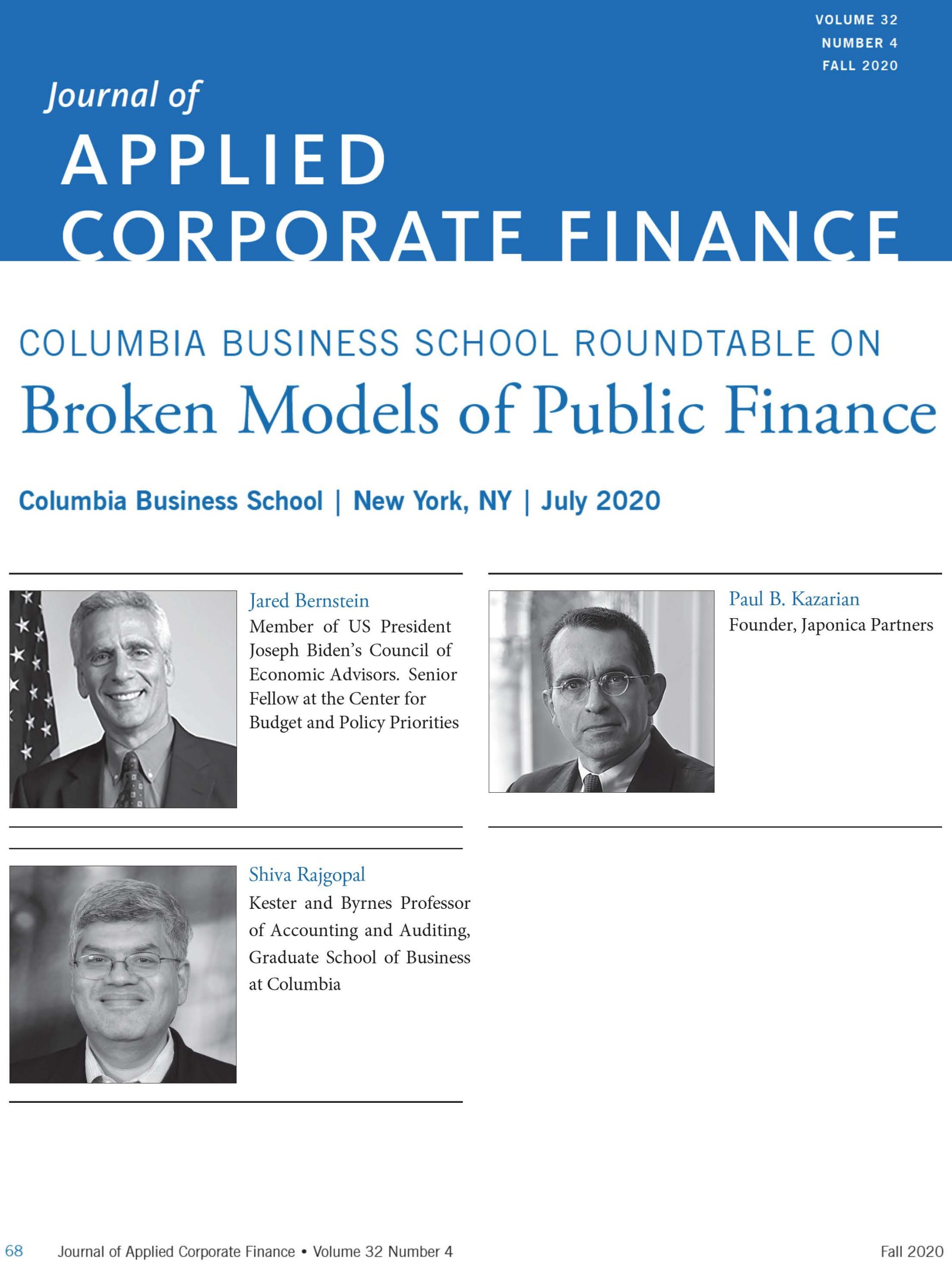
Joe Biden’s chief economic adviser joins a proactive investor who was one of the largest private investors in Greek government bonds in dispelling a number of widespread misconceptions about public finance and sovereign debt, with particular focus on the inadequacies of the conventional measures used by politicians, the media, and even many economists when assessing the financial performance and condition of national governments. After describing the limitations of the “traditional debt and deficit model,” Paul B. Kazarian proposes the use of an alternative called Public Financial Management, or “PFM,” that has been implemented in New Zealand, the U.K. and 12 other countries. Such a model aims to provide a general government total balance sheet (federal, state, and local governments) that reflects all government assets and liabilities. And when using PFM, one finds, for example, that New Zealand is consistently ranked first or second in the world on Government Total Net Worth as percentage of GDP and Citizens’ Wealth (CW1), whereas the U.S. falls well below the top tier.
Jared Bernstein, on the other hand, is much less concerned by the understatement of U.S. debt and other liabilities than by the failure of conventionally reported U.S. debt and spending statistics to distinguish between “good” and “bad” debt, and between positive- and negative-NPV public expenditures. While conceding that U.S. unfunded liabilities “sound very scary,” Bernstein points out that financial markets seem relatively unconcerned, if only because these future costs and liabilities are estimated on the basis of current law and practices, and sovereign governments, to a far greater extent than private corporations, have the power to limit liabilities or increase projected revenues just by reducing benefits or imposing or raising taxes.
